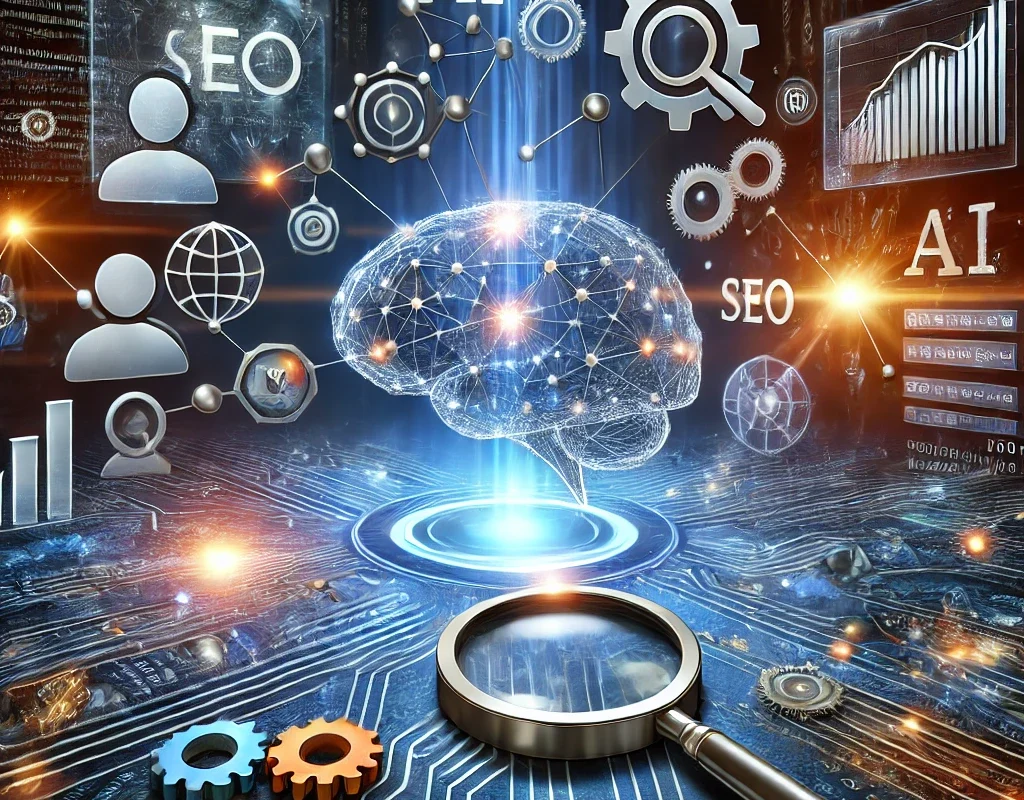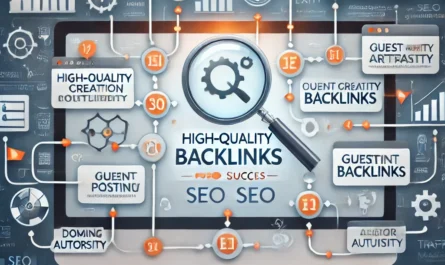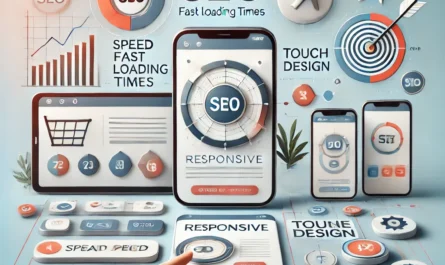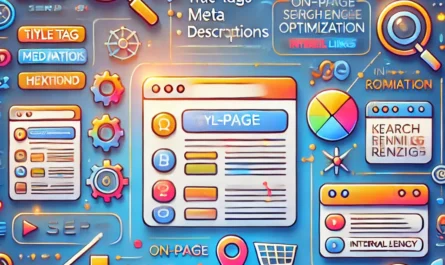In today’s fast-paced digital world, artificial intelligence (AI) has revolutionized the way search engines operate and how businesses approach search engine optimization (SEO). With AI becoming more prevalent, it’s natural to wonder, should you be concerned about AI’s impact on SEO? The answer is a nuanced one, as AI can both simplify and complicate SEO practices. In this article, we will explore how AI is shaping the future of SEO and what it means for businesses, marketers, and website owners.
AI and the Evolution of SEO
AI has fundamentally transformed SEO from a set of static rules to a more dynamic, adaptable process. Search engines, particularly Google, have been incorporating AI technologies like machine learning (ML) and natural language processing (NLP) to refine their algorithms and deliver more relevant search results. The rise of RankBrain and BERT (Bidirectional Encoder Representations from Transformers) are key examples of AI-driven systems that have shifted how content is indexed and ranked.
Why AI is Becoming Essential for Search Optimization
Before AI, SEO relied heavily on optimizing web pages for specific keywords and metadata. However, AI introduces a new layer of sophistication by analyzing user behavior, understanding search intent, and even predicting future search trends. As a result, marketers and SEO professionals now need to think beyond keyword stuffing and focus on creating content that resonates with users on a deeper level.
How AI Impacts SEO
AI’s integration into SEO touches every aspect of the field, from keyword research to technical optimization.
Changes in Keyword Research
AI-powered tools have made keyword research more intuitive by identifying trends, user behaviors, and intent in a way that manual research never could. These tools are capable of suggesting long-tail keywords, optimizing for voice search, and even forecasting future search trends based on historical data.
For example, platforms like Google’s Keyword Planner or SEMrush now incorporate AI-driven insights that provide more accurate and actionable data for marketers. The result? More targeted content that aligns with what users are genuinely searching for, rather than blindly following popular keywords.
AI-Driven Content Creation
One of the most significant shifts AI has introduced is the rise of automated content generation. AI can now create high-quality content at scale, using tools like GPT-based text generators or algorithmic content management systems.
Automating Content Generation for SEO
By leveraging AI, businesses can automate the production of blog posts, product descriptions, and even marketing emails. While AI-written content may still require human editing, the speed and efficiency of this process allow brands to produce large amounts of SEO-friendly content more rapidly. Importantly, AI tools are trained to follow SEO best practices, ensuring that this content is keyword-optimized, readable, and relevant to the audience.
AI-Powered Search Algorithms
Search engines have become more intelligent with the help of AI. Google, for instance, uses RankBrain—an AI-based algorithm that helps sort and process search results based on user queries. As AI continues to evolve, search engines will only become more adept at understanding the subtleties of human language and intent.
How Google and Other Search Engines Use AI
Beyond RankBrain, Google has integrated NLP with its BERT algorithm to better comprehend context, phrasing, and nuance in user queries. These advancements mean that Google can deliver search results that are more tailored to the user’s intent, rather than merely matching keywords.
This development underscores the need for marketers to create well-rounded, high-quality content that addresses the broader scope of user queries and interests.
Understanding AI’s Role in Personalization
One of AI’s most powerful contributions to SEO is the ability to personalize content for users. By analyzing search history, behavior patterns, and demographic data, AI can deliver customized search results tailored to individual preferences.
Enhancing User Experience with AI
Personalized search results not only improve user satisfaction but also increase engagement and conversion rates. SEO experts now need to focus on crafting content that caters to personalized search outcomes, ensuring that their websites remain visible to targeted segments of users.
Voice Search and AI
The rapid growth of voice-activated search has introduced new challenges for SEO. AI-powered voice assistants like Google Assistant, Amazon’s Alexa, and Apple’s Siri are driving this trend.
The Rise of Voice Search and Its SEO Implications
Voice searches tend to be longer, conversational, and question-based. This shift means that websites need to optimize for natural language queries and long-tail keywords that mimic how people speak. In turn, this forces SEO professionals to rethink their content structure, aiming to answer specific questions clearly and directly.
AI in Search Ranking Algorithms
Search engines today don’t just rank websites based on keywords. AI now plays a crucial role in evaluating content quality, user engagement metrics, and other key factors that influence search rankings.
Machine Learning and Search Engine Rankings
AI algorithms rely on machine learning to continuously improve how search results are ranked. They learn from user interactions—such as click-through rates, bounce rates, and dwell time—to better understand what type of content is most relevant to specific search queries. For SEO professionals, this means that high-quality, engaging content is more important than ever to maintain top search rankings.
Natural Language Processing (NLP) in SEO
Natural Language Processing is transforming the way search engines interpret and categorize content. By understanding the context and semantics behind a search query, NLP helps search engines deliver more relevant results.
How NLP Impacts Content Relevance
SEO practitioners must ensure that their content is written in a way that AI-driven search engines can understand. This includes creating content that is not only keyword-optimized but also contextually relevant, addressing the intent behind the search query rather than simply matching the exact words.
You Can Also Read:Top 8 SEO Trends You Should Follow for Better Rankings
AI-Powered SEO Tools
Today, there are several AI-powered tools available to help with SEO. These tools range from keyword research platforms to content optimization software.
Tools That Leverage AI for Optimizing Content
Some popular tools include:
- Surfer SEO: Provides AI-powered recommendations for content optimization based on top-ranking pages.
- MarketMuse: Uses AI to analyze content gaps and suggest ways to improve relevance and ranking potential.
- Clearscope: AI-driven content research tool that helps SEO professionals find the best keywords and content ideas.
By leveraging these tools, marketers can gain valuable insights into how to improve their content and stay ahead of the competition.



